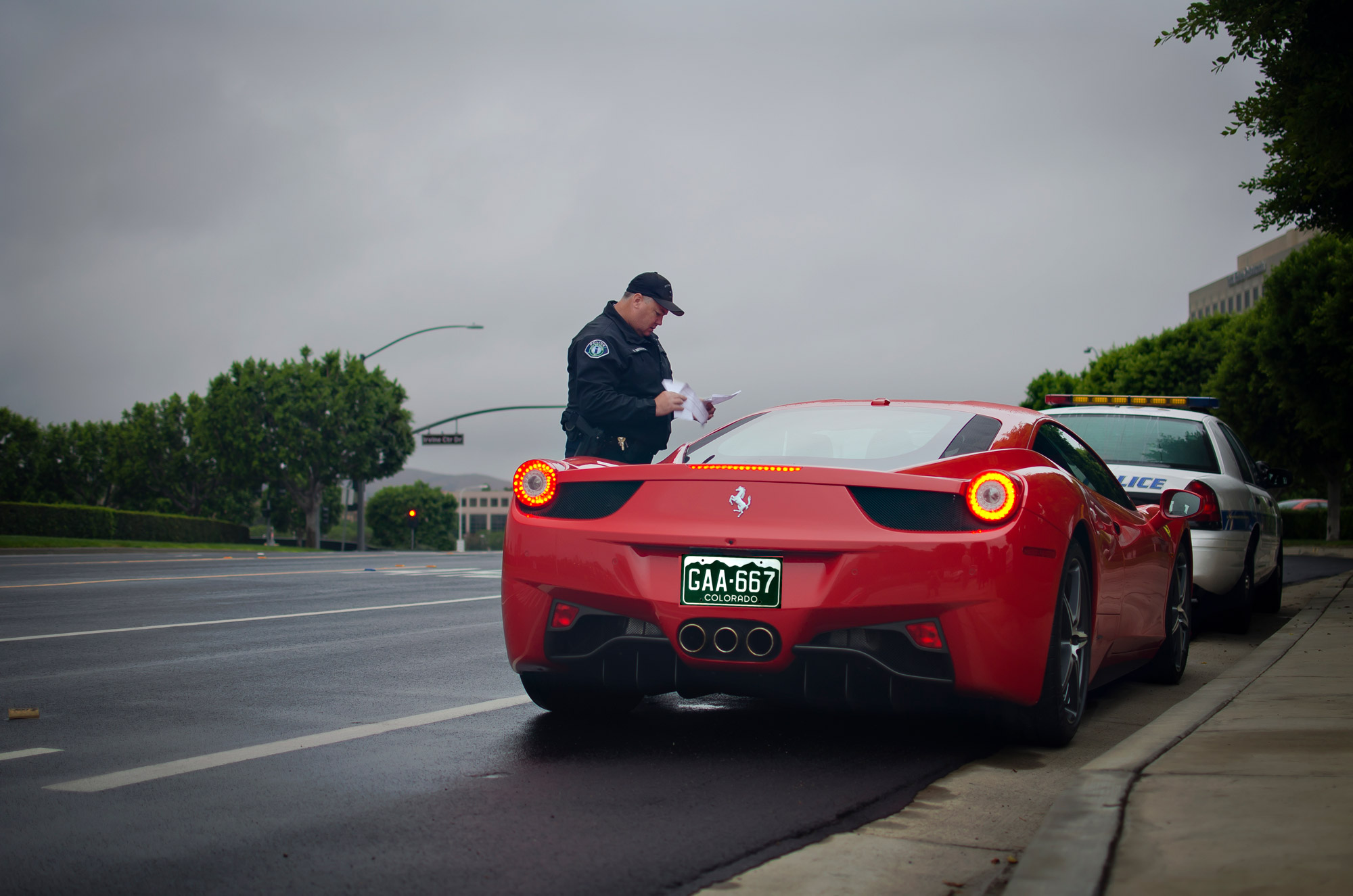
Seven Important DUI Tips
What To Do If You Are Stopped By The Police For DUI In Colorado
Summer is here and with it comes many wonderful and enjoyable things in this amazing State. One sight that is indicative of summer in Colorado, as sure as hot dogs and fireworks are those “The Heat Is On” signs along our highways. And it’s true.
The State Patrol and local police are in full force pursuing those who may be drinking, smoking and driving on our highways. Of course, this should be avoided, but you want to know your rights and exercise them if you find yourself looking at flashing lights in your rearview mirrors:
1. “Can I see your license, registration and proof of insurance?”
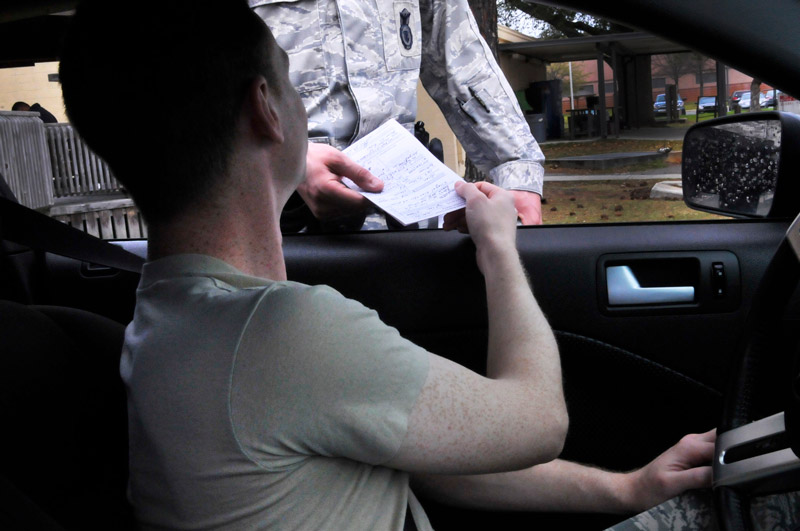
You’ve pulled over to a safe place for the officer to approach you. Keep your hands where the officer can see them and keep your paperwork somewhere handy and readily accessible (like your driver’s side visor). This is not the time to be fumbling around in your glove box or purse.
The officer will be cautious for their own safety and some can get downright nasty when their adrenaline is pumping. They will be sizing you up from that moment on. Make sure you don’t seem scattered or disorganized. Stay calm, cool and collected.
2. “Have you been drinking?”

Most likely, the answer is NO. You haven’t been drinking and driving, have you? Of course you haven’t. That would be extremely irresponsible. What if you have? You have a constitutional right not to answer any questions, with the exception of booking information.
If they persist, “drinking” is a verb and subjective, so you can truthfully answer “no”. The officer is investigating for probable cause against you and gathering evidence that you have been drinking. He has most likely pulled you over for a minor traffic infraction, and now wants to gain “probable cause” for arrest (admission of drinking, bloodshot or watery eyes, slurred speech, can make the difference in this analysis).
These indicia of intoxication allows them to proceed a with DUI investigation. Do not give them the opportunity. When I am representing clients with a DUI, I read the police reports the law enforcement officer has written and what was said at the time of the police contact, according to their recollection of the events. Now with body and dash cams, it’s sometimes even recorded.
When the client makes an incriminating admission, it becomes just that much harder to defend. Don’t feed evidence to the police. You are well within your rights to say nothing at all to the officer.
3. Voluntary Roadsides/Field Sobriety Tests.
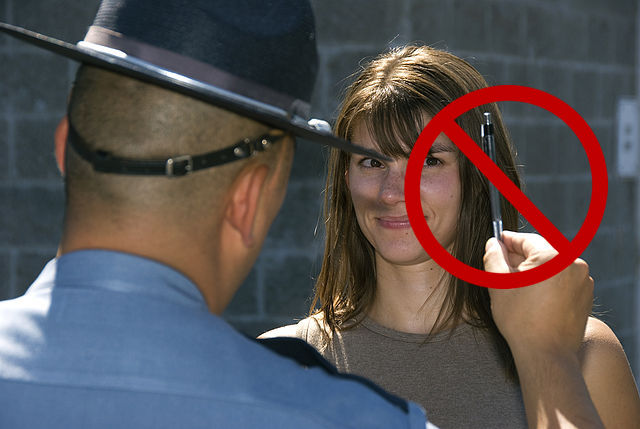
The officer may ask you to take some voluntary field sobriety tests. The old, walk a straight line, touch your nose and follow the pen with your eyes routine. Did you know that in Colorado, this is a Fourth Amendment search and therefore, requires consent of the driver and is voluntary? Now you do.
You can politely decline (“No, thank you.”) to do the tests that you never “pass”. The old honey and vinegar adage applies here. There is no reason to be rude or defensive. Police officers are just doing their job and this behavior can come off as incriminating.
4. “I’d like to have you blow into this Portable Breath Device to see if you are safe to drive”.
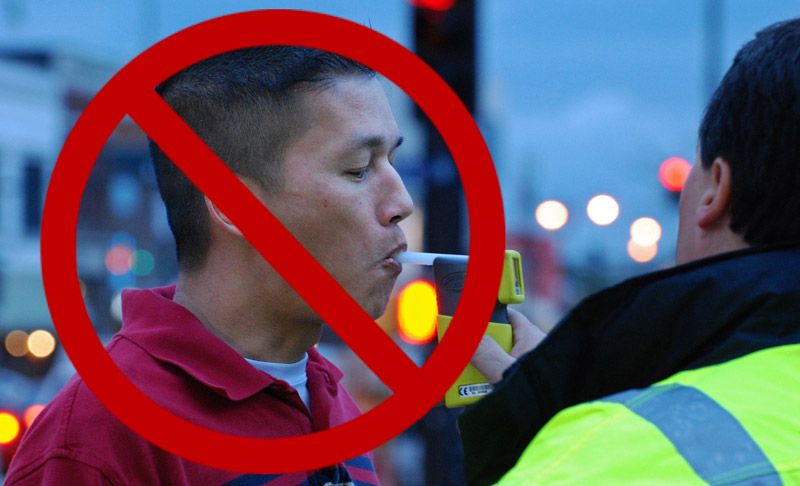
Unless you have had nothing to drink, once again, politely say “No, thank you”. The results can be used to establish probable cause for arrest. This device is not exact and is not designed to gain scientific information so it is inadmissible at Trial, but is specifically used to form probable cause for arrest. This handheld device is not an “Intoxilyzer”, which is the more reliable test at the station/hospital, and IS admissible at Trial. Which leads to me to the next thing you need to know.
5. You’ve been arrested and cuffed. Boo!
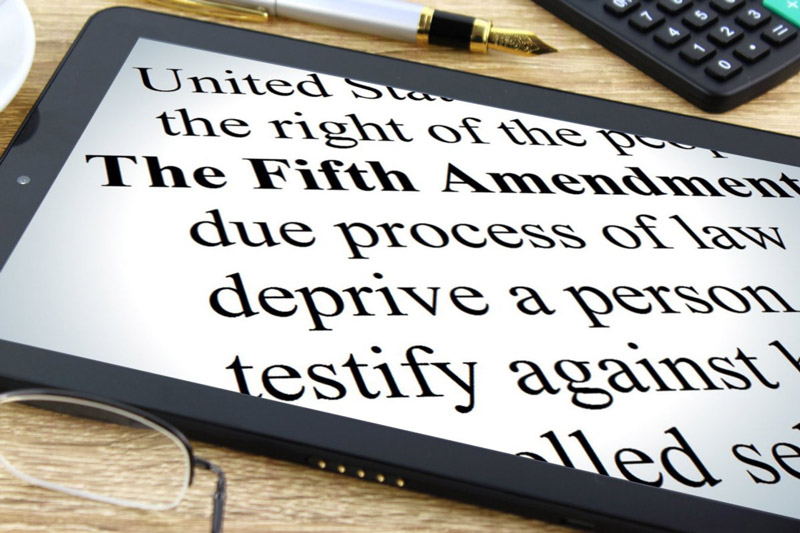
The Officer will read to you the “Express Consent Advisement”. Coffee or Tea? No. Not this time; Blood or Breath? Yep. That’s it. The report may say “slurred speech”, “bloodshot, water eyes” “fumbling with documents” (see tip #1). The Officer will say that he/she detected “an odor of an unknown alcoholic beverage emanating from (the driver’s) breath”, cop talk for “smells like you have been drinking”.
Unless there is a Felony Investigation for an accident with “serious bodily injury” or death, you can politely refuse to do either the Blood or Breath test. Once again, you are not obligated to give the police any evidence to incriminate yourself. That’s their job, not yours.
“But I’ll lose my license for a year if I don’t take the test!” you say. Wrong. Recent legislation has been passed that allows drivers to regain their license within Sixty days after refusing the chemical test. If you take a test that proves you were over .08 BAC, it is Thirty days.
6. Be polite and pleasant.
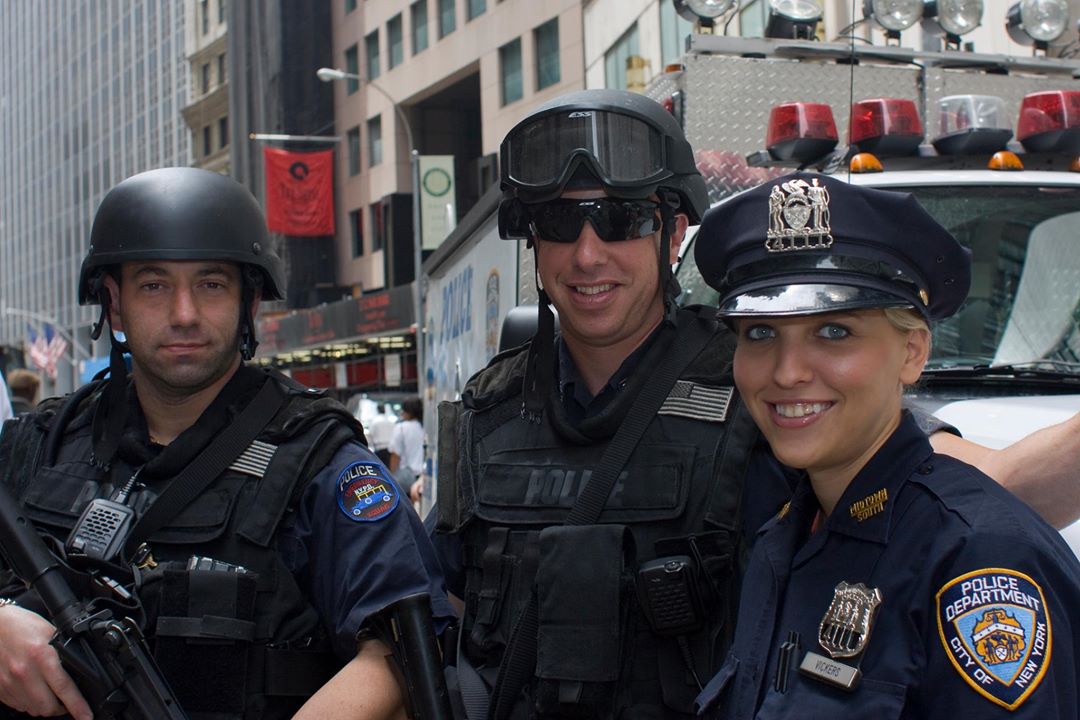
Just because you are declining to participate in their attempt to gather incriminating evidence against you, doesn’t mean the encounter has to be hostile. It will, undoubtedly, be unpleasant, but showing respect and responding “no thank you” will result in a much better factual situation.
7. If in doubt, show the officer the back of my business card.
 If all of these steps are too hard to remember for you, or you feel like your overwhelmed or scared by this entire situation, just refer to the back of my card. This isn’t Monopoly, and this isn’t your “get out of jail free” card, but in this situation, it’s the closest thing you’ve got. These are YOUR RIGHTS under the Fourth, Fifth, Sixth and Fourteenth Amendments to the U.S. Constitution. Exercise those rights. Don’t incriminate yourself.
If all of these steps are too hard to remember for you, or you feel like your overwhelmed or scared by this entire situation, just refer to the back of my card. This isn’t Monopoly, and this isn’t your “get out of jail free” card, but in this situation, it’s the closest thing you’ve got. These are YOUR RIGHTS under the Fourth, Fifth, Sixth and Fourteenth Amendments to the U.S. Constitution. Exercise those rights. Don’t incriminate yourself.
Take care of yourself and your future and follow these simple steps if you do wind up with the lights flashing behind you one day.
Have a wonderful summer and remember, It’s their job to produce evidence against you, not yours. And it’s my job to take care of you if you do have a “traffic misunderstanding”. Sometimes bad things happen to good people.
Don’t beat yourself up over it. Just learn from it. Hopefully if we do meet, it won’t be under these circumstances, but if you need to, call me, and I will provide you with excellent representation. If it is possible to get you out of this mess, I will, and if not, I will make it as painless as possible.
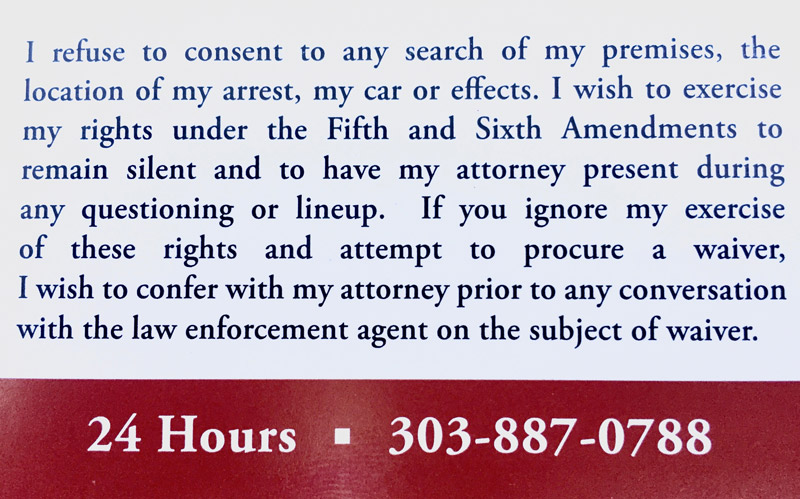
Next time, I’ll address other issues like checkpoints and driving under the influence of drugs.